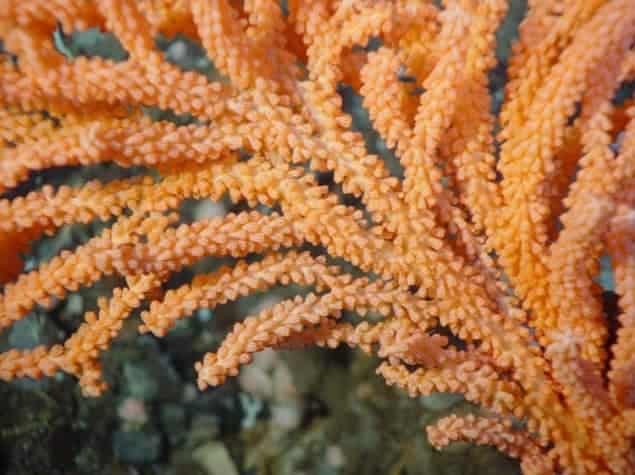
The Gulf Stream off eastern Canada appears to have advanced northward of its historical position in recent decades, possibly in response to anthropogenic climate change. That is according to researchers in North America and Switzerland who say that the changes could have some profound implications for marine life off the coast of Canada.
The new study focuses specifically on a region just off the coast of Nova Scotia. This section of the Atlantic is fed from the north by the cold waters of the Labrador Current, and from the south by the warmer waters of the Gulf Stream. The mixing of these two water flows creates a nutrient-rich ecosystem for species such as cod, which has attracted a large fishing industry.
By analysing micro-organisms preserved in deep-sea sediment, scientists have suspected for several years that the balance between the Labrador Current and the Gulf Stream waters has been changing. Water from the Gulf Stream tends to be more stratified and richer in nutrients so it leaves a different signature in the sediment record than the waters coming from the north.
A smeared record
The trouble with these studies, however, is that their temporal resolution has been poor so researchers have only been able to attribute changes to some point in the past 150 years. “The limitations are partly because there are a lot of organisms down there that stir the sediments, smearing the historical records,” explains Owen Sherwood of the Memorial University of Newfoundland in Canada, the lead author of the new study.
Sherwood’s team has now managed to improve this resolution by turning its attention to corals, which exist in abundance in this part of the north-west Atlantic. Because these organisms – which can live for thousands of years – extract nitrogen from the ocean, they document the changes in the balance between the waters of the Gulf Stream and the Labrador Current, which contain differing nitrogen signatures.
The analysis involved determining the 15N/14N ratio within individual amino acids taken from gorgonian corals. As these deep-sea corals grow new rings in their endoskeleton every year, Sherwood’s team was able to determine annual variations in water composition stretching back 1800 years. According to Sherwood, one of the big challenges his team faced was collecting corals for analysis, but these were collected by remotely operated vehicles and others were supplied by the fishing industry, which accidentally scoops up corals in its nets.
Recent climate changes
Reporting their findings in Proceedings of the National Academy of Sciences, the researchers say that the dominance of the warm Gulf waters since the early 1970s appears to be largely unique within this bimillennial period. Although Sherwood’s team links these changes with recent changes in global climate, it says that further analysis is need to investigate the effects on wider ocean circulation. “These water masses do appear to have changed significantly in recent years, though I must emphasize that we have only looked at a very specific region off the coast of Nova Scotia,” says Sherwood.
This is a very exciting result, and one of the nicest demonstrations of the importance of cold-water corals of archives of environmental change Murray Roberts, Heriot-Watt University
Murray Roberts, a bioscientist at Heriot-Watt University in the UK, is impressed by the experimental work. “This is a very exciting result, and one of the nicest demonstrations of the importance of cold-water corals of archives of environmental change,” he says. “[The researchers] have uncovered new evidence that the recent warm and nutrient-rich conditions in the north-west Atlantic off Nova Scotia may be rather different to earlier times – and this change seems to be related to anthropogenic climate change.”
Roberts warns that ecologists cannot make specific predictions about how these changes will impact on local marine life. “Any broad changes in seawater temperature and nutrient supply are very likely to affect sedentary species like cold-water corals and sponges,” he says. “In simple terms they can’t get up and crawl or swim away if conditions become less suitable for them.”
The research group intends to develop its study and has recently obtained a grant from the US National Science Foundation to study the coral record in this part of the Atlantic in more detail.



